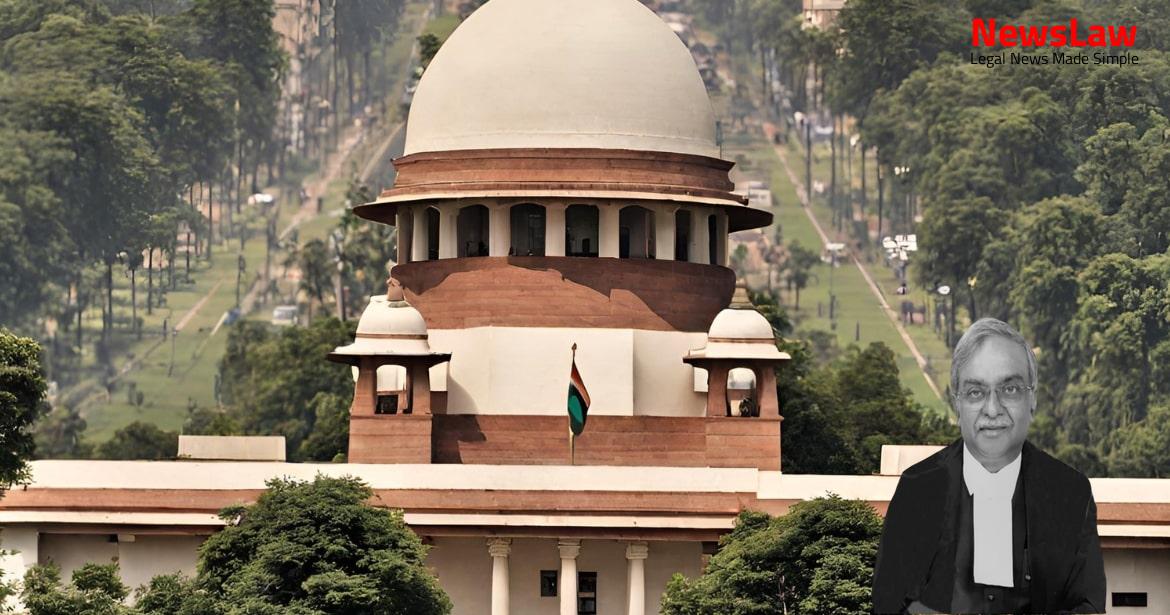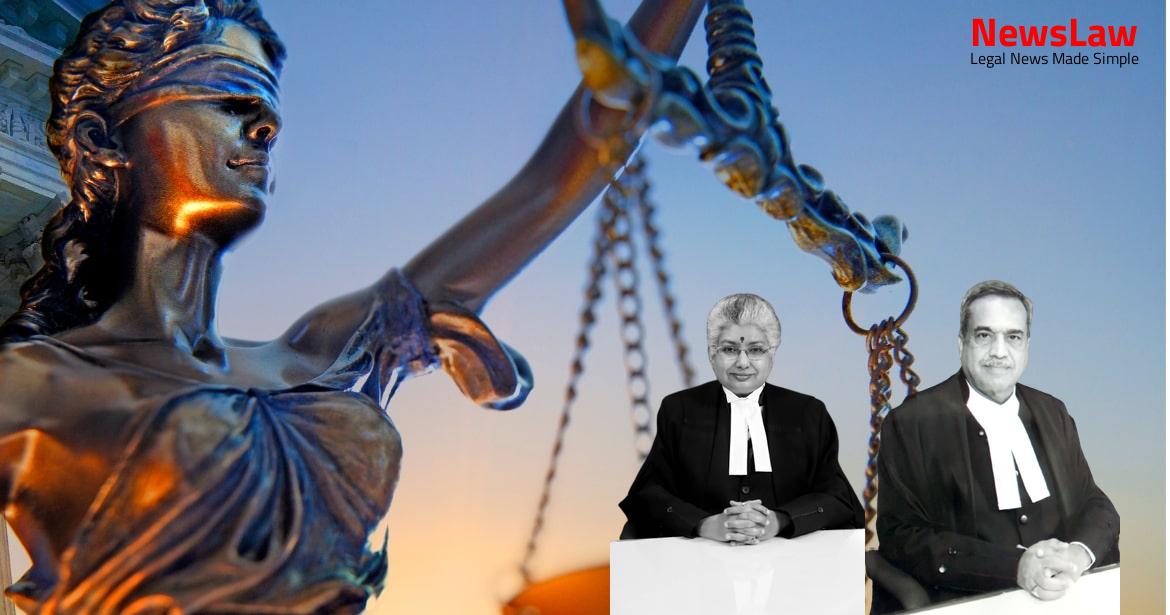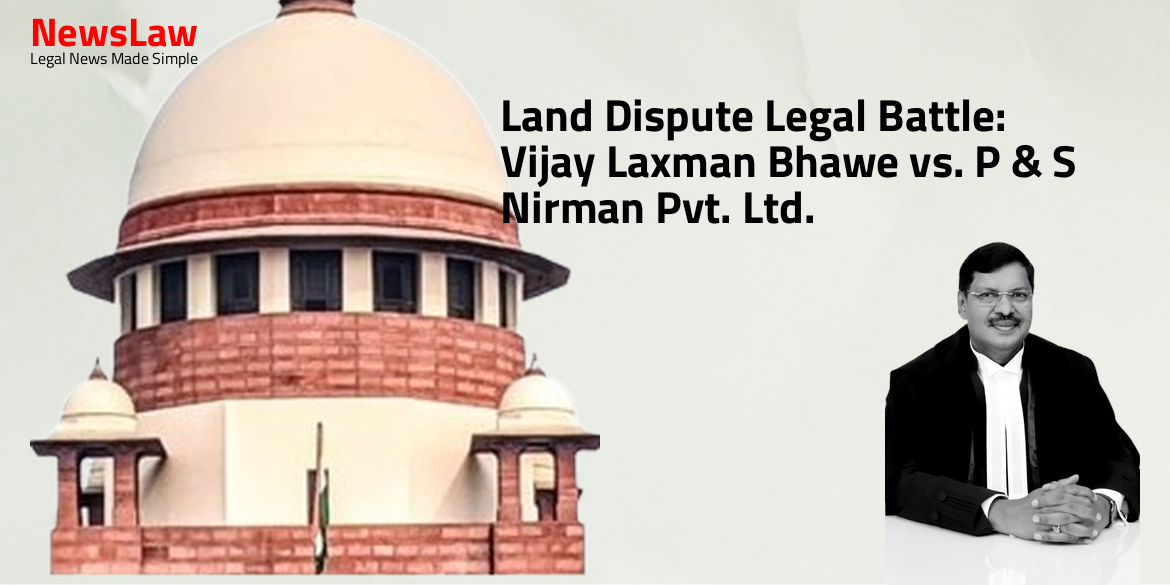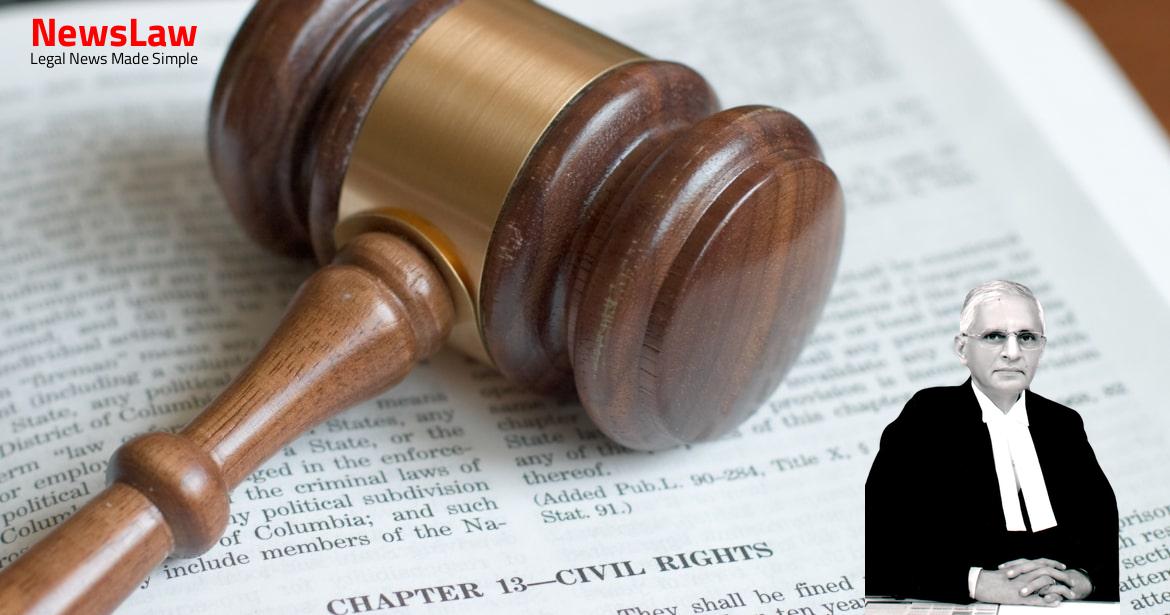Delve into the realm of legal analysis as courts navigate the nuances of valuation and jurisdiction in the context of suits for mandatory injunctions. The intricacies of court fees, relief sought, and market value play a crucial role in determining the appropriate jurisdiction for legal proceedings. Stay tuned as we unravel the legal principles and precedents that guide courtroom decisions in this complex landscape.
Facts
- Defendant No 2 moved an application under Order VII Rule 11 CPC challenging the jurisdiction of the Trial Court due to the value of the suit property being Rs. 1.8 crores.
- The application was contested by the plaintiff and rejected by the Trial Court as the suit was properly valued according to the reliefs claimed in the plaint.
- Plaintiff filed a suit for mandatory injunction against the defendants for removing themselves from specific rooms on the plot, prohibition from creating third party rights, and damages.
- The plaintiff alleged that the defendants, especially defendant No. 2, did not vacate the premises as initially agreed upon.
- The High Court discussed previous case laws and the plaintiff’s claim of damages for unauthorized use of the plot.
- After serving a notice, the plaintiff found the defendants planning constructions on the plot to defeat his legal rights.
- The High Court found the facts of the case to be similar to a previous case, Mulk Raj Khullar.
- The suit for mandatory injunction was deemed appropriate by the High Court, giving the plaintiff the discretion to value the suit for court fees and jurisdiction.
- The suit for mandatory injunction was not filed after significant delay post termination of alleged licenses, based on the decision in Sant Lal Jain.
- The Trial Court considered only the plaint for deciding an application under Order 7 Rule 11 CPC.
- The High Court disagreed with the contesting defendant’s submissions, referencing Mulk Raj Khullar.
- The High Court found the valuation of the suit at Rs. 250 for each relief of injunction to be arbitrary, ordering the return of the plaint for filing in an appropriate court.
- All aspects regarding the license denial could only be determined in the trial, leading to the dismissal of defendant no. 2’s application under Order 7 Rule 11 CPC.
Also Read: Ensuring Maintenance Rights: Court’s Legal Analysis
Issue
- Defendant No. 2 contested the suit, claiming the plaintiff had no rights in the property and the suit was based on fabricated documents.
- Defendant No. 2 alleged the suit was a ploy by the plaintiff to seize the property with the help of Defendant No. 1.
- Defendant No. 2 asserted hostile and undisputed possession of the plot.
- Defendant No. 2 argued that there was no cause of action for the suit to be filed.
- Defendant No. 2 claimed the suit property’s value was over Rs. 2.5 crores, putting the court’s jurisdiction in question.
Also Read: Analyzing Evidentiary Value in Criminal Conviction Case
Arguments
- Respondent argues that the plaintiff is actually seeking possession of the suit property disguised as a mandatory injunction.
- It is claimed that the respondent has been in undisputed possession of the suit property for over 12 years.
- The respondent denies the ownership of the appellant and the existence of a licensor-licensee relationship.
- The respondent contends that the suit for mandatory injunction is not maintainable as the appellant is attempting to recover possession under the guise of a mandatory injunction, which is beyond the jurisdiction of the Trial Court.
- The plaintiff has also requested perpetual prohibitory injunction to prevent the defendants from creating third-party rights or constructing on the suit property.
- The learned counsel for the appellant argued that the suit valuation was proper and in accordance with Section 7(iv)(d) of the Court Fees Act, 1870.
- It was emphasized that the market value of the suit property was over Rs. 1.8 crores, exceeding the jurisdiction of the Senior Civil Judge. Therefore, the suit should not have been tried by that Court.
- The plaintiff’s testimony indicated the market value of the property to be around Rs.1.8 crores, contradicting the valuation of Rs.250 for each injunction relief in the plaint.
- As a result of these discrepancies, the Trial Court directed the plaint to be returned for proper valuation and filing in a court of appropriate jurisdiction.
- The distinction between a title suit for possession and a suit for mandatory injunction against a licensee to vacate the premises was highlighted by the counsel.
- Various legal precedents were referenced to support the position on suit valuation and maintainability of the suit seeking injunction relief.
- The appeal against the Trial Court’s judgment and decree is pending, leaving the merits of the case for examination by the First Appellate Court.
Also Read: Legal Authority and Res Judicata in Representation Matter
Analysis
- Valuation of a suit is determined by the nature of relief claimed, not the market value of the immovable property involved.
- Claim of relief of mandatory injunction is valid in legal process, as per relevant court decisions.
- A suit for mandatory injunction is maintainable when filed promptly after termination of a license.
- High Court’s reliance on market value for suit valuation was considered arbitrary and not in conformity with law.
- Legislature has not provided a standard for suit valuation in the Court Fees Act, leaving it to the plaintiff to determine.
- The High Court’s decision on valuation not in line with legal principles and cannot be sustained.
- The fee payable under the Act for suits involving injunctions is computed based on the value of relief sought in the plaint or memorandum of appeal.
- The plaintiff must state the amount at which they value the relief sought in suits for injunctions.
- The present suit involves a mandatory injunction against the defendants to vacate the plot as they were occupying it as licensees and were required to do so after the termination of their licenses.
- In the case of Urmilabala Biswas v. Binapani Biswas, the court held that the valuation of relief should be based on the objective standard or materials available, not an arbitrary valuation.
- The suit in the mentioned case was for declaration of title to a definite sum of provident fund money, and the relief was valued at the full amount of the fund claimed.
- It was emphasized that there is no need to value a suit for mandatory injunction concerning property at the market value of the property.
- The High Court’s observation in Mulk Raj Khullar’s case was influenced by the Delhi High Court case of Padmavati Mahajan v. Yogender Mahajan, where discretion in valuing a suit for injunction was discussed.
- The High Court overlooked the statement in Mulk Raj Khullar’s case that a suit for injunction is not required to be valued at the market value of the property.
- In the present case, the plaintiff valued the mandatory and prohibitory injunctions at Rs. 250 but also valued the claim for damages at Rs. 1 lakh and paid court fees accordingly.
- The Full Bench decision in Mahant Purushottam Dass’s case was also mentioned as being unnecessarily cited.
- The High Court failed to consider Section 7(iv)(d) of the Court Fees Act and the principles of law stated in the same decision it relied upon.
- The impugned order should be set aside based on this omission.
- The argument about the lack of framing of issues is no longer valid in light of the above.
Decision
- Appeal allowed and impugned order set aside
- Trial Court order restored
- No observations on merits of the case made
- Merits of the case remain open for examination in pending appeal before First Appellate Court
- No order as to costs of this appeal
Case Title: BHARAT BHUSHAN GUPTA Vs. PRATAP NARAIN VERMA (2022 INSC 649)
Case Number: C.A. No.-004577-004577 / 2022



